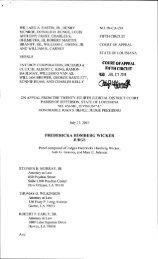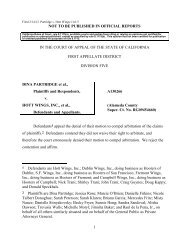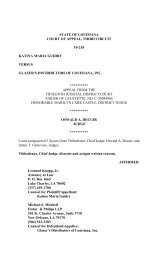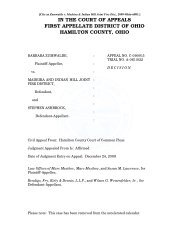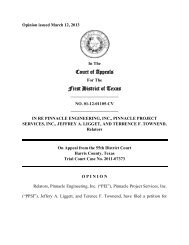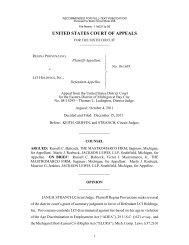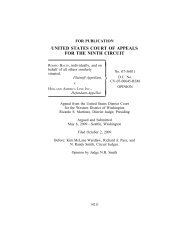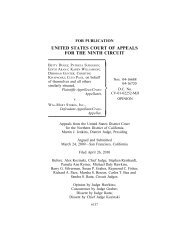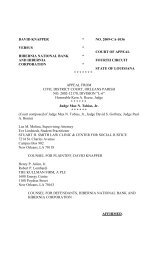STATE OF MINNESOTA IN COURT OF APPEALS A10 ... - LawMemo
STATE OF MINNESOTA IN COURT OF APPEALS A10 ... - LawMemo
STATE OF MINNESOTA IN COURT OF APPEALS A10 ... - LawMemo
You also want an ePaper? Increase the reach of your titles
YUMPU automatically turns print PDFs into web optimized ePapers that Google loves.
equires overtime compensation for time worked in excess of 40 hours per workweek. 29<br />
U.S.C. § 207(a)(1) (2006). The rules implementing the MFLSA designate the<br />
“workweek” as “[t]he period of time used for determining compliance with” the overtime<br />
requirements of the MFLSA. Minn. R. 5200.0170, subp. 1 (2009). The “workweek” in<br />
turn is defined as “a fixed and regularly recurring period of 168 hours, seven consecutive<br />
24-hour periods,” presumptively the calendar week. Id.<br />
The district court granted summary judgment dismissing appellants‟ statutory<br />
overtime claim because appellants could not demonstrate that their compensation fell<br />
below the amount required by the MFLSA. The district court determined that appellants‟<br />
compensation—which included overtime compensation for (undisputed) hours worked in<br />
excess of 40 as required by the FLSA—so significantly exceeded the compensation<br />
required under the MFLSA that, even when the disputed donning and doffing time was<br />
included in the calculation, the appellants‟ compensation exceeded that required by the<br />
MFLSA. The district court properly viewed the facts in the light most favorable to<br />
appellants in reaching this determination.<br />
Appellants assert that the district court erred by employing a “workweek<br />
averaging” rule in relation to their overtime claim. Although the district court‟s<br />
determination of Jennie-O‟s overtime compliance relied upon the construct of a<br />
workweek—as is directed by rule 5200.0170—and referred to workweek averaging, the<br />
court did not actually engage in any “averaging.” Rather, the district court compared the<br />
amount of compensation that appellants actually received with the amount to which they<br />
6



